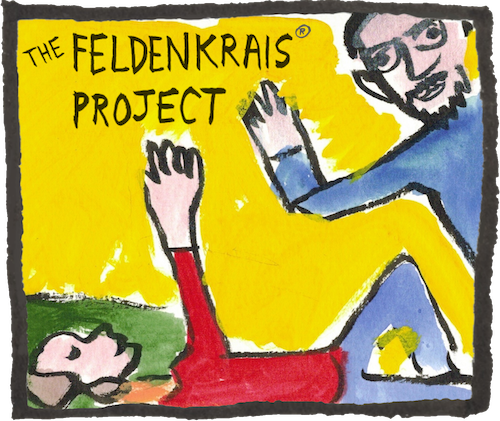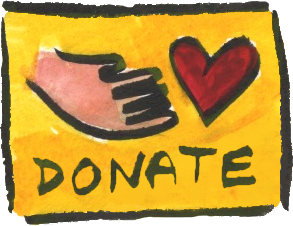Relaxing Your Neck and Jaw (39m)
Part of our Getting Oriented collection. Also appears in our Jaw, Neck, and Shoulders course, and Six Lessons for Anxiety.
Back-lying, often knees bent. Relax with simple Awareness Through Movement techniques designed to reduce stress and pain and improve function. You'll also discover pleasant connections of the jaw and neck with your breath, tongue, lumbar spine, and pelvis. Often very helpful for TMJ problems.
Got a question for Nick, or a thought about this lesson?
Use the comments section below! Public comments build our community and help search engines find us.





I really like the work that includes the tongue in this practice. I noticed that not only the neck but the throat was more relaxed. A good one for singers.
Having done this for three successive days I feel that my head is significantly more erect – and I feel taller. May be the most relaxing lesson I’ve done.
Fabulous. I had been considering renaming this “Relaxing Your Jaw and Neck” as I assemble lessons for our upcoming jaw/neck/shoulders Deep Dive. I think you just sealed the deal on that!
UPDATE: Done! (This lesson used to be called “Comforting Your Jaw and Neck”). And here’s the Jaw, Neck, and Shoulders Deep Dive.
The right side of my neck has been feeling tight (for years). I definitely felt that my bones had released somehow after this. Also, I appreciated how calmly soothing this exercise was… as life can be too stressful, so thanks Nick! I am only starting on this Feldenkrais journey, but when I dedicate some time, I am reaping the benefits. Amazing how so little can do so much!
Thank you Nick for this, your lessons have really been life changing for me.
Somehow the biggest lasting change from this lesson is in my low back and pelvis, easing a persistent tension. Also found the effect on my breathing depending on the tongue position was really profound which is something I can focus on to ease tension in my day.
I chronically clench the right side of my jaw and, boy, was that obvious as I did this lesson! This showed me that I clearly need to be gentler and smaller with my strategies. I have more work to do, but I definitely felt moments of relaxation in my face, mouth and jaw that I haven’t felt for a long time.
Hi
I was wondering why I would feel a bit nauseated when it came to moving the tongue? I’ve had tmj for many years and I have a lot of tension in my neck and shoulders. I only did this lesson once and only got up to the tongue part (about 20 minutes in) but will the nausea go away eventually?
Thank you so much for all these lessons. They’ve been very valuable to me especially over the course of the pandemic.
Hard to say exactly, but nausea is a sign to stop – I’m glad you did. You can try again later if/when you like, but do the movements smaller, more slowly, more gently. Maybe with the sense that you’re only imagining them. Or if you notice the work on one side of your mouth is more comfortable than the other, stick with that for now. Just keep on making adjustments toward comfort and ease, and things will change and almost certainly improve.
My favourite so far. So helpful with my problematic neck, jaw and pelvis. Thank you Nick. Love your voice too – so calm, clear and relaxing.
Thank you Nick. I love this lesson, it helps so much. I was amazed at how much my jaw and tongue position influenced my walking ease at the end.
That was the perfect exercise to get back into my Feldenkrais practice after taking more than a month off. I’m always amazed by how much just 40 minutes of Feldenkrais can change my body awareness and tension levels. I have a question for clarification: What exactly do you mean by ‘roof of the mouth’? As a non-native speaker, that’s not entirely clear to me.
Yes, sometimes time off is the biggest reminder of what Feldenkrais study means for our lives!
The roof of your mouth is the top boundary inside. When you lift up your tongue and touch everything behind your upper teeth, you’re touching the roof of your mouth.
I’m a retired General Dentist. This lesson is a must for anyone having a tense jaw. It will help many people who are habitual Bruxer’s. I carry tension in my jaw after a busy day. This exercise completely relaxed my jaw,neck, masticatory muscles ,too. I wish I had this technique when I was treating patients! Thanks,Nick
Thank you Nick for this free excercise. I am beginning to get aquainted with the Feldenkrais method and hope to dig deeper into this and experience the benefits of nervous system regulation and stress release.
After doing this exercise the tinitus buzz in my right ear has gotten louder. Should i do LESS or is this maybe not a good exercise for me?
Welcome! Hard to say from afar about the tinnitus. I can’t imagine this lesson isn’t good for anyone, but next time you try it use about 25% of the effort and range you were using the first time, and see what happens. Let us know here if you wish!
Thanks Nick, our study group enjoyed your lesson. One group member had neck pain for several days, joined us with a heat pack on her neck. At the end of the lesson her neck pain was gone! The power of Feldenkrais- we all agreed- simple, yet complex and effective!